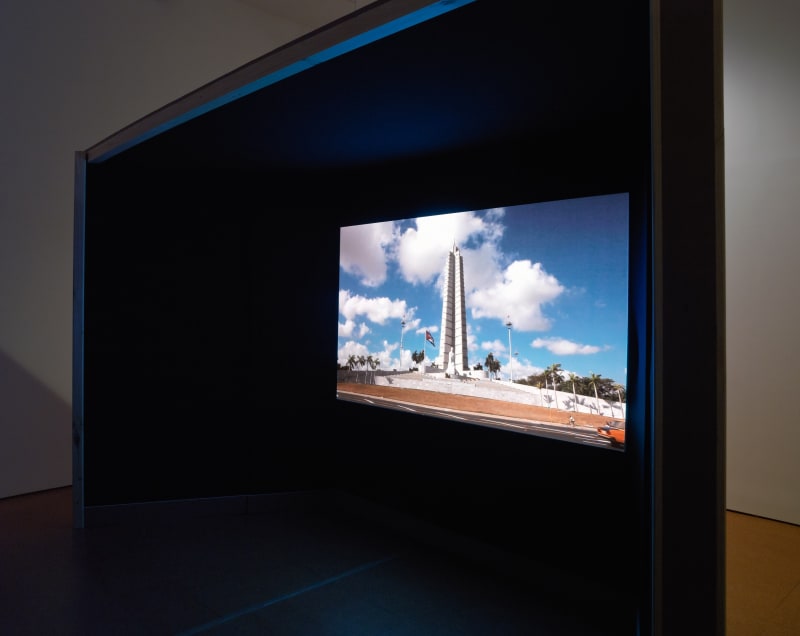Coco Fusco: The Empty Plaza / La Plaza Vacia
Coco Fusco
The Empty Plaza / La Plaza Vacia
Alexander Gray Associates presented New York-based artist Coco Fusco’s first solo exhibition with the Gallery.
The cornerstone of the exhibition, The Empty Plaza/La Plaza Vacia is a single-channel video. Inspired by the organized public protests in the Middle East beginning in 2011, the artist took note of the communal spaces around the world being utilized and, in contrast, those left empty.
For Fusco’s new work, the empty Plaza de la Revolución in Havana, Cuba becomes the protagonist in her meditation on public space, revolutionary promise, and memory. Intermittent close-range views bring the Plaza’s architecture into focus; long takes documenting Fusco’s passage through the vacant square are punctuated by vintage archival footage depicting scenes from Post-Revolutionary Cuba. Throughout the duration of the video, a Spanish narration, written by acclaimed Cuban journalist Yoani Sanchez, describes what appears—and does not appear—in view. Also on exhibit are film stills from The Empty Plaza. Cinematic in impact, the images are dominated by a broad horizon line as the large sky and the vast civic plaza are nearly equalized.
“The absence of public in some plazas seemed just as resonant and provocative as its presence in others,” Fusco recalls. “Cuba’s Plaza of the Revolution is one such place—a stark, inhospitable arena where all the major political events of the past half-century have been marked by mass choreography, militarized displays and rhetorical flourish. I decided to create a piece about that legendary site—an empty stage filled with memories, through which every foreigner visitor passes, while nowadays many, if not most, Cubans flee.”
2012 marked the twentieth anniversary of Fusco’s seminal collaborative performance work with Guillermo Gomez-Peña, Couple in the Cage: Two Undiscovered Amerindians Visit the West and its presentation in the legendary 1993 Whitney Biennial. Fusco revisits this important work through a series of new engravings, which are on view at the Gallery. Rendered in the style of Nineteenth-century caricatures, Fusco’s recollections of audience responses to the Amerindians performance weave a humorous yet unsettling narrative, exposing the residue of colonial stereotypes in contemporary culture. While looking back, the new works underscore the long-lasting effects of Colonialism that remain prevalent in the contemporary art world, in spite of broad cultural progress since the early-1990s platforms of institutional-critique and multiculturalism.


